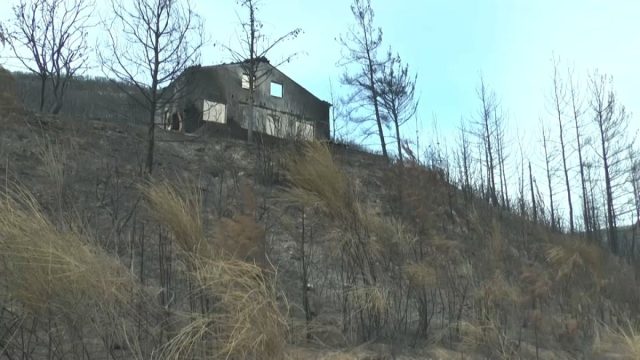Tiago Oliveira, president of the Agency for Fire Management in Portugal, underlines the importance of awareness-raising work and advocates the creation of an interoperability mechanism in firefighting at European level.
More than 100 dead and 500,000 hectares burned. They were common figures in the fires of Portugal until 2017. That year was the deadliest and most devastating of the country.
Since then, the number of forest fires has been reduced by more than halfmainly thanks to a risk behavior prevention campaign, promoted by the Integrated Forest Fire Management Agency (AGIF), within the framework of the Integrated Management System of Forest fires (SCIFR).
“We started working after 2017. Portuguese society was very traumatized by the fires and in the first year of the campaign, in 2018, we focused on a clearer message: ‘Portugal is calling you’.
It was necessary to appeal to all Portuguese to reduce the number of fires“explains Tiago Oliveira, president of the Board of Directors of AGIF, in statements to ‘Euronews’.
A drastic reduction in fires
According to Tiago Oliveira, before 2019, an average of 20,000 fires a year and last year the number was reduced to 7,000. “This was achieved with a media campaign, giving alternatives to people who need to use fire to get rid of agricultural waste”
“We provided a number that allowed people to call and ask for help burning or ask if they could burn or not,” he explains, noting that there has been a change in the behavior of the Portuguese as for the negligent use of fire.
A new campaign
After the campaign ‘Portugal Chama‘ (‘Portugal is calling you’), which ran from 2018 to 2023, AGIF has launched a new campaign that will last until 2026 to further reduce these numbers.
“This year, the strategy will involve personalized door-to-door contact, through the Republican National GuardFor example. We want greater involvement, now with the Ministry of Education through campaigns in schools for students between five and 12 years old.
2024, a year with positive figures
According to the data revealed on Monday by the Institute of Nature and Forest Conservation (ICNF), the year 2024 records, until August 15, the Fewest fires and smallest burned area since 2014. In total, 3,485 rural fires have already occurred this year.
Even so, August is already the month with the most burned area in 2024 and has doubled the July figures. From August 1 to 15, 3,484 hectares burned, while in the previous month the fires had consumed an area of 1,582. The area burned in these first two weeks corresponds to 44% of the total area burned this year in Portugal continental (7,949 hectares).
Fewer rural fires
Comparing the figures for 2024 with those of the previous 10 years, there were 58% fewer rural fires and 87% less burned area than the annual average for the same period.
“This year, 2024, we have 3,500 fireswhich is a relevant record, because people have also consolidated this knowledge a lot in the rural areas. It has also been a mild summer, we have not had so much dryness and thus not all sparks do not generate fires,” explains the president of AGIF.
According to the informe State of Wildfires published in the journal ‘Earth System Science Data’, between March 2023 and February 2024, The fires in Europe were contained in scaledevastating only 8,400 square kilometersbut causing the interruption of water supply, damage to infrastructure or agricultural land, with impacts on tourism and local economies.
A common extinction system throughout the continent
Tiago Oliveira maintains that Europe needs an “interoperability mechanism so that the forces of neighboring countries can operate in the same way.”
“No enough with andSend air means from one country to another. When they arrive, they need to coordinate with the Forces on the ground and work with common mechanisms. Canada and the United States do it very well and Europe can be inspired by this model,” he argues.
Furthermore, the president of AGIF believes that it is necessary to articulate policies. “In particular, use the Common Agricultural Policy, that allows farmers to better manage their forests, and pay more attention to abandoned lands, to agricultural practices that do not generate fires and allow for always treated vegetation,” he adds.
To datethe Evros fire, in northeastern Greecein August of last year, is the largest recorded in the European Union. It burned 938 square kilometers in one go, setting a new record on the old continent.







